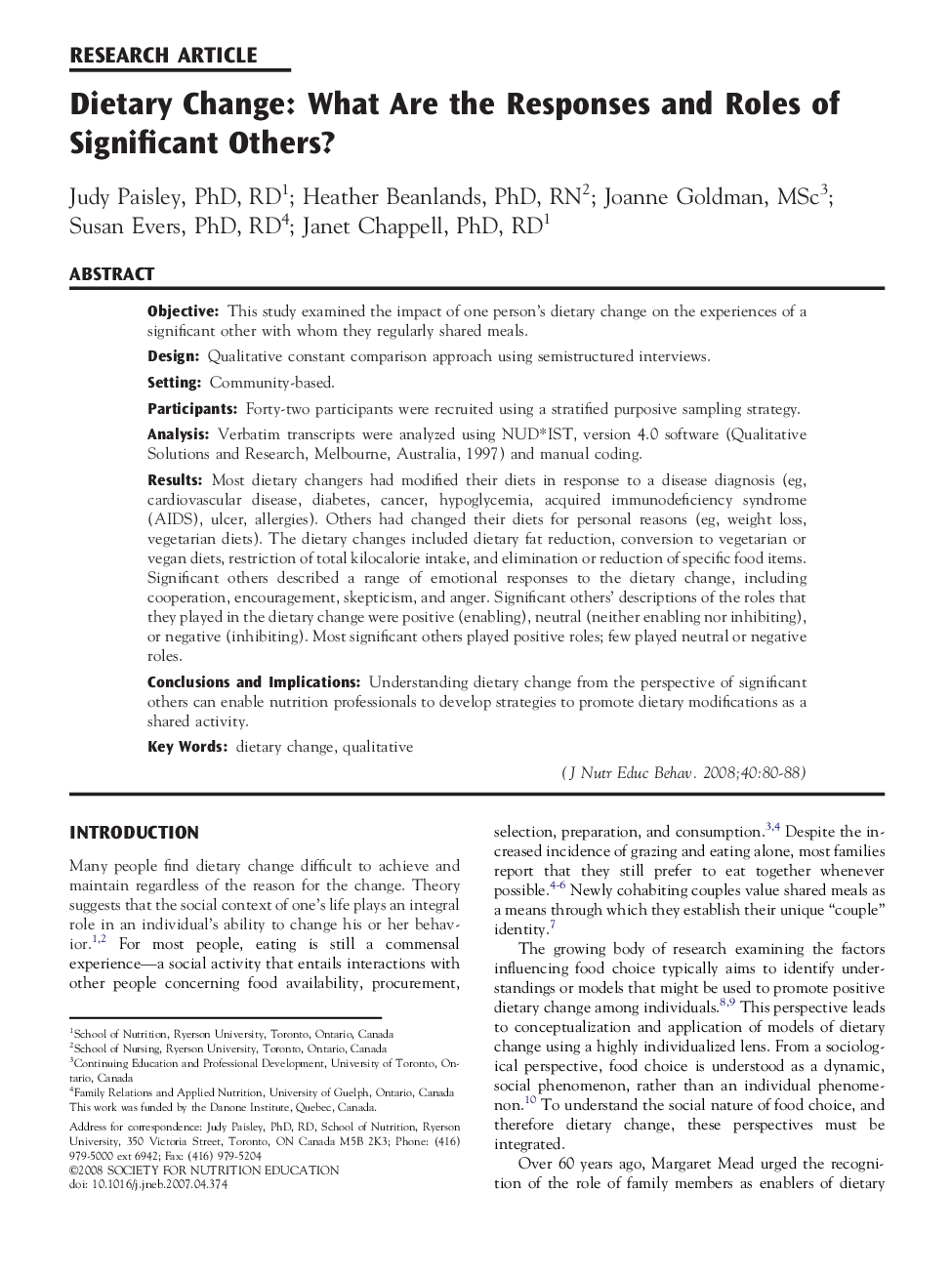| Article ID | Journal | Published Year | Pages | File Type |
|---|---|---|---|---|
| 363294 | Journal of Nutrition Education and Behavior | 2008 | 9 Pages |
ObjectiveThis study examined the impact of one person’s dietary change on the experiences of a significant other with whom they regularly shared meals.DesignQualitative constant comparison approach using semistructured interviews.SettingCommunity-based.ParticipantsForty-two participants were recruited using a stratified purposive sampling strategy.AnalysisVerbatim transcripts were analyzed using NUD*IST, version 4.0 software (Qualitative Solutions and Research, Melbourne, Australia, 1997) and manual coding.ResultsMost dietary changers had modified their diets in response to a disease diagnosis (eg, cardiovascular disease, diabetes, cancer, hypoglycemia, acquired immunodeficiency syndrome (AIDS), ulcer, allergies). Others had changed their diets for personal reasons (eg, weight loss, vegetarian diets). The dietary changes included dietary fat reduction, conversion to vegetarian or vegan diets, restriction of total kilocalorie intake, and elimination or reduction of specific food items. Significant others described a range of emotional responses to the dietary change, including cooperation, encouragement, skepticism, and anger. Significant others’ descriptions of the roles that they played in the dietary change were positive (enabling), neutral (neither enabling nor inhibiting), or negative (inhibiting). Most significant others played positive roles; few played neutral or negative roles.Conclusions and ImplicationsUnderstanding dietary change from the perspective of significant others can enable nutrition professionals to develop strategies to promote dietary modifications as a shared activity.
